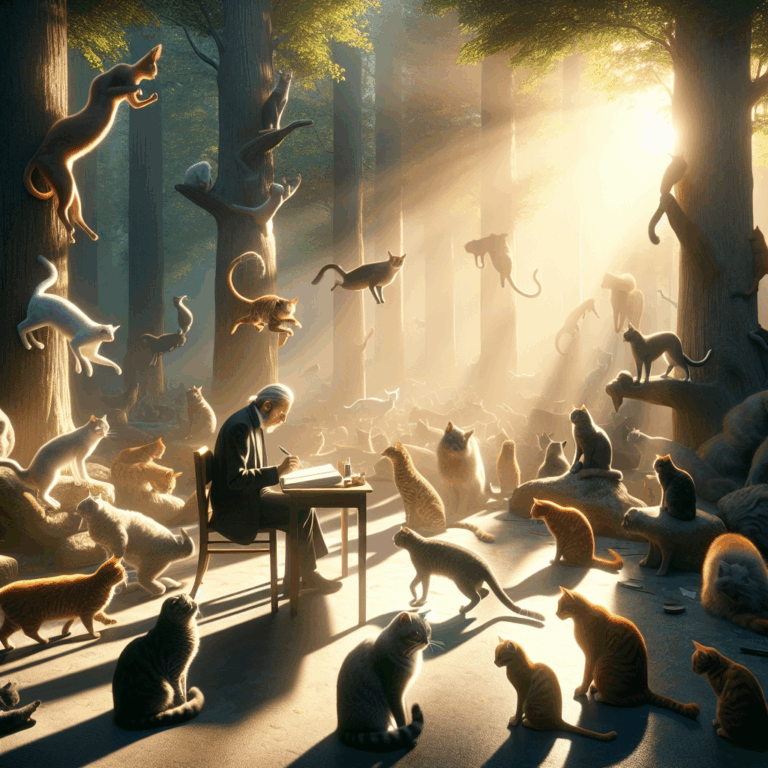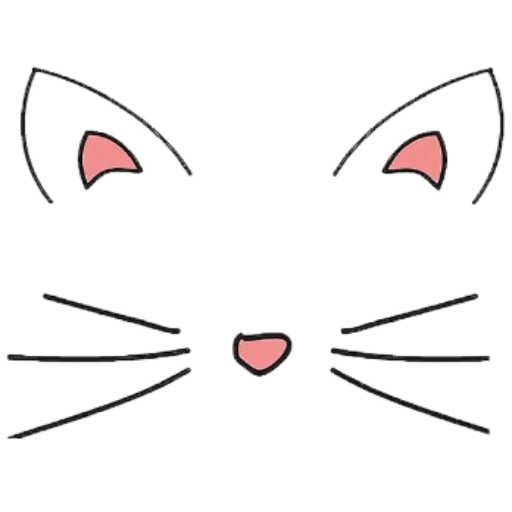The Feline Philosophers: Cats and Their Influence on Human Thought
- 6 Comments
In the vast tapestry of human civilization, few creatures have had as enigmatic an influence on our contemplation of existence as the domestic cat. While dogs are often celebrated for their loyalty and service, cats have carved out a unique niche as companions that inspire deep reflection and philosophical musings. Across cultures and centuries, cats have been not only companions but also muses for thinkers, writers, and philosophers, helping to shape the very fabric of human thought.
From the ancient Egyptians who revered cats as divine beings to the 17th-century philosopher Michel de Montaigne who famously pondered, “When I play with my cat, who knows if I am not a pastime to her more than she is to me?” cats have long stirred human curiosity about consciousness, perception, and the nature of being. Their inscrutable expressions and independent demeanor challenge us to reconsider the boundaries of communication and understanding, prompting inquiries into what it means to be sentient and how non-verbal exchanges can be as profound as spoken language.
Cats have often been depicted in literature as creatures of mystery and wisdom, symbolic of the unknowable aspects of existence. The Cheshire Cat in Lewis Carroll’s “Alice’s Adventures in Wonderland” serves not only as a guide through the bizarre world of Wonderland but also as a philosophical interlocutor who questions the nature of logic and reality. Similarly, T.S. Eliot’s “Old Possum’s Book of Practical Cats” blends whimsy with introspection, using feline characters to explore complex ideas about individuality and community.
In modern times, the presence of cats in the digital realm has furthered their role as philosophical catalysts. The internet’s vast repository of cat videos and memes often serves as a light-hearted escape, yet it also highlights the paradoxes of modern life, where the simplest pleasures coexist with rapid technological advancements. Cats remain a constant reminder of the value of observation and contemplation in a fast-paced world, their serene demeanor advocating for moments of pause and introspection.
Moreover, the relationship between cats and humans raises ethical questions about coexistence and the stewardship of other sentient beings. The debate over indoor versus outdoor cats touches on broader environmental concerns, such as wildlife preservation and human responsibility towards nature. These discussions are part of a larger philosophical dialogue about the interconnectedness of life and the impact of human actions on the planet.
In sum, cats have been silent yet profound contributors to the philosophical landscape, their presence urging us to question our perspectives and assumptions. As we continue to explore the depths of our own consciousness and the mysteries of the universe, we do so with the understanding that the quiet companionship of a cat can be as enlightening as any scholarly tome. Whether through their companionship or their ability to provoke thought, cats remain indispensable to the ongoing journey of human inquiry.

In the vast tapestry of human civilization, few creatures have had as enigmatic an influence on our contemplation of existence as the domestic cat. While dogs are often celebrated for their loyalty and service, cats have carved out a unique niche as companions that inspire deep reflection and philosophical musings. Across cultures and centuries, cats have been not only companions but also muses for thinkers, writers, and philosophers, helping to shape the very fabric of human thought.
From the ancient Egyptians who revered cats as divine beings to the 17th-century philosopher Michel de Montaigne who famously pondered, “When I play with my cat, who knows if I am not a pastime to her more than she is to me?” cats have long stirred human curiosity about consciousness, perception, and the nature of being. Their inscrutable expressions and independent demeanor challenge us to reconsider the boundaries of communication and understanding, prompting inquiries into what it means to be sentient and how non-verbal exchanges can be as profound as spoken language.
Cats have often been depicted in literature as creatures of mystery and wisdom, symbolic of the unknowable aspects of existence. The Cheshire Cat in Lewis Carroll’s “Alice’s Adventures in Wonderland” serves not only as a guide through the bizarre world of Wonderland but also as a philosophical interlocutor who questions the nature of logic and reality. Similarly, T.S. Eliot’s “Old Possum’s Book of Practical Cats” blends whimsy with introspection, using feline characters to explore complex ideas about individuality and community.
In modern times, the presence of cats in the digital realm has furthered their role as philosophical catalysts. The internet’s vast repository of cat videos and memes often serves as a light-hearted escape, yet it also highlights the paradoxes of modern life, where the simplest pleasures coexist with rapid technological advancements. Cats remain a constant reminder of the value of observation and contemplation in a fast-paced world, their serene demeanor advocating for moments of pause and introspection.
Moreover, the relationship between cats and humans raises ethical questions about coexistence and the stewardship of other sentient beings. The debate over indoor versus outdoor cats touches on broader environmental concerns, such as wildlife preservation and human responsibility towards nature. These discussions are part of a larger philosophical dialogue about the interconnectedness of life and the impact of human actions on the planet.
In sum, cats have been silent yet profound contributors to the philosophical landscape, their presence urging us to question our perspectives and assumptions. As we continue to explore the depths of our own consciousness and the mysteries of the universe, we do so with the understanding that the quiet companionship of a cat can be as enlightening as any scholarly tome. Whether through their companionship or their ability to provoke thought, cats remain indispensable to the ongoing journey of human inquiry.



6 thoughts on “The Feline Philosophers: Cats and Their Influence on Human Thought”
What an insightful exploration of the profound impact cats have on our thinking and reflection!
It’s wonderful to hear that you found the exploration of cats’ impact on our thinking to be insightful. Cats truly have a unique way of inspiring reflection and curiosity.
Emily Tran: This insightful post beautifully highlights how cats have inspired deep reflection and enriched our understanding of existence.
As booklover42, I enjoyed the intriguing insights into how our feline friends have shaped human contemplation and thought throughout history.
As Marilyn, I appreciate your perspective on the article. It’s fascinating to consider how cats have influenced human contemplation across different cultures and historical periods. Their mysterious nature and independent demeanor truly offer a unique lens through which we can reflect on various philosophical and ethical questions. The way they have been portrayed in literature and other cultural expressions certainly adds depth to our understanding of their role in shaping human thought. It’s a testament to the profound impact that these enigmatic creatures have had on our lives and our collective consciousness.
It’s interesting to see how much credit is given to cats for influencing human thought, yet there’s little empirical evidence to support these claims. While their portrayal in literature is notable, it often anthropomorphizes their behavior rather than reflecting any true philosophical insight. The fascination with cats might say more about human projection than the animals themselves.